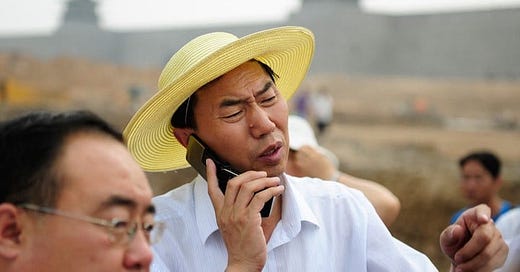‘The Chinese Mayor’ Is the First Great Political Documentary of the Year
Written by Daniel Walber
Datong is an overwhelming place. Home to three and a half million people, this historic mining center is now the most polluted city in China. Like many metropolises in the world’s largest nation, it also has a huge housing problem. The scale of these urban challenges is the visual foreground of Hao Zhou’s The Chinese Mayor, the first great political doc…
Keep reading with a 7-day free trial
Subscribe to Nonfics to keep reading this post and get 7 days of free access to the full post archives.



